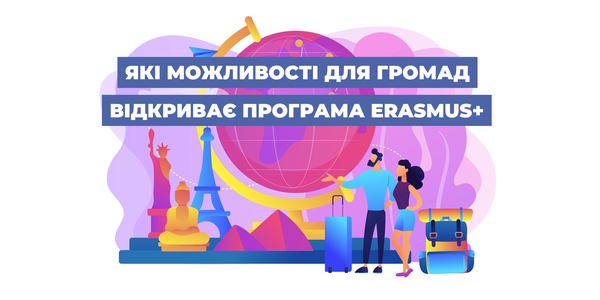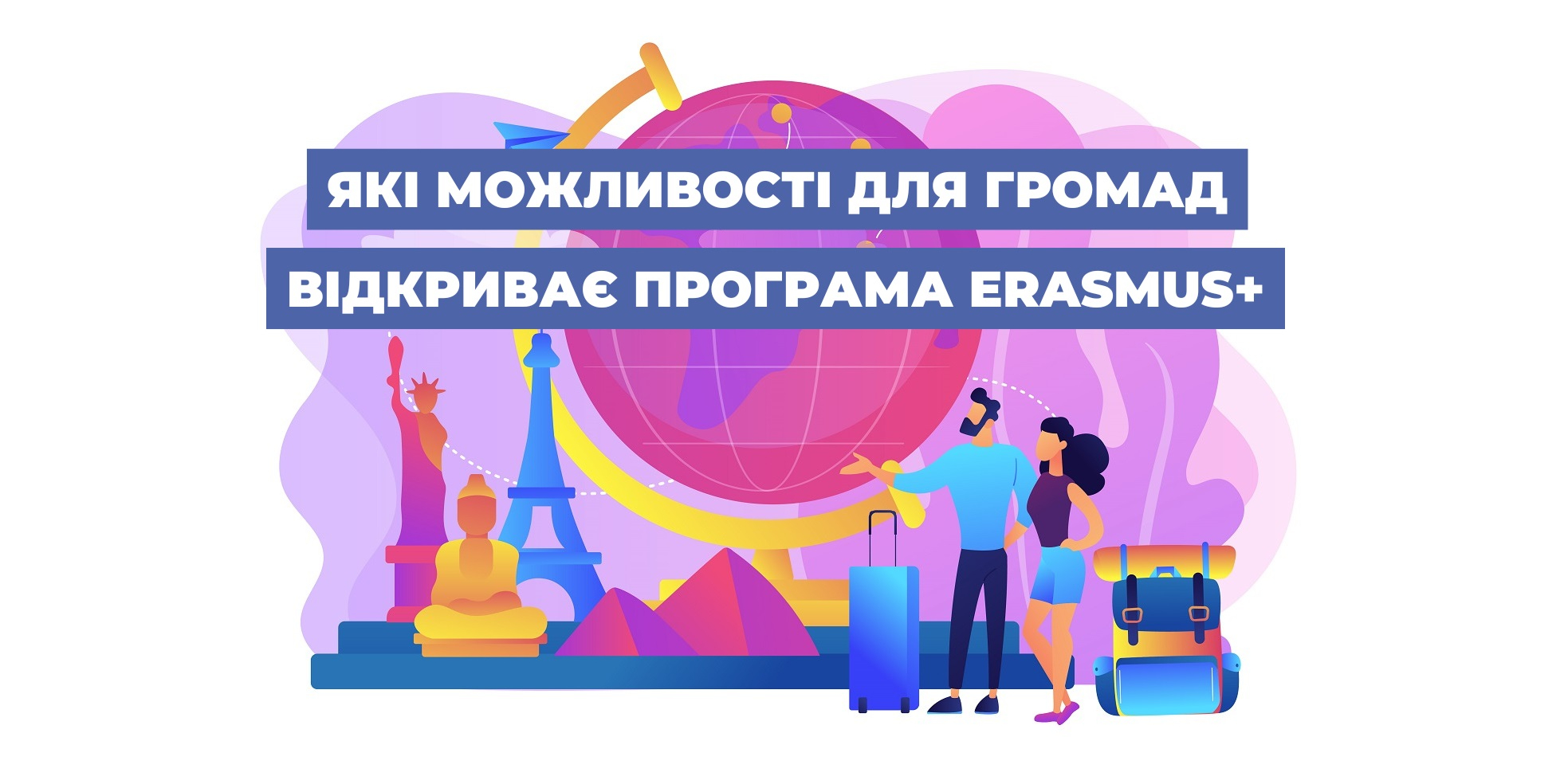Opportunities opened for municipalities by Erasmus+
U-LEAD continues to introduce local self-government to capacity-building opportunities. This time, more than 50 participants of the event learned about the activities of the EU Erasmus+ programme and discussed how the implementation of European practices contributed to the development of municipalities.
In August, the Regional Office of U-LEAD with Europe in the Zakarpattia Oblast held an info session on the topic “Participation in Erasmus+: Opportunities and Prospects of Municipalities of Ukraine”. In his welcoming speech, Pavlo Lohvinov, Head of the Regional Office, stated the following:
“Everyone assumes that the Erasmus programme is more about youth exchanges and supporting youth initiatives. Let’s, however, look at this programme from a different angle to consider how participation in Erasmus+ projects can contribute to the development of the municipality.”
Kateryna Zhdanova, Project Manager and Youth&Sport Coordinator at Erasmus+, took the floor next:
“Erasmus+ is the EU Programme aimed at supporting education, youth and sports. It offers a wide range of opportunities for studies, internships, volunteering and cooperation within Europe and beyond. Ukrainian schoolchildren and students can also participate in this programme.”
The programme finances scholarships/grants for exchanges for individual participants, as well as cooperation projects for the development of professional networks and attracting new resources for organisations. They must meet the following priorities: inclusiveness and diversity, green and digital transformations.
The project manager explained that municipalities can start their cooperation with the programme by initially taking on raising public awareness about Erasmus+ programmes and initiatives. The next step could be joining initiatives as partners of EU-based NGOs.
The youth of the Volovets municipality have already participated in Erasmus+ exchange programmes. According to Mykhailo Kivkovych, Head of the Department of Economy and Social Services of the Volovets municipality, the biggest challenge was to understand “what the codes are” and to take the first step:
“Once we contacted the Erasmus+ Office, we received clarifications regarding applications, finding partners and signing up on platforms. We’ve established cooperation with Polish NGOs. The youth of our municipality took part in the project, where they studied history, exchanged ideas and had fun together with their peers from Poland and Germany. Now we have a cooperation proposal from another NGO.”
Kateryna Zhdanova emphasised that beyond experience exchange or educational projects, Erasmus+ also supports multi-layered projects that bring changes to the municipality and improve the lives of its residents:
“Here you have free rein. What are your pain points? What problems do you want to solve at the level of your municipality? This is your vision. It can be an initiative that combines the exchange of experience, training for project participants and then the implementation of acquired knowledge in the municipality. The main thing is that the project should meet the priorities, the budget and the deadlines.”
The project manager explained which sports development projects can receive support from the Programme. According to her, the sports direction of Erasmus+ is about supporting sports-related organisations (NGOs, schools, clubs, etc.):
“Sports are about the health of young people. Sports are about teambuilding, the development of new European values, about gender equality and mental health. This does not have to be a sports organisation at all, but one whose efforts are related to sports; they might focus on mental health through certain activities.”
Mykola Tryhub, Deputy Rector for Prospective Development of the National Technical University “Dnipro Polytechnic”, spoke about the implementation of the third mission of higher education institutions that includes partnerships with municipalities aimed at using international opportunities. He believes that one of the most important tasks of educational institutions is to create conditions for young people, having mastered the best European practices, new knowledge and skills, to return to the municipality to make it better.

Tags:
European integration EU program European integration budget
Source:
U-LEAD with Europe

23 February 2026
Моніторинг громад – січень 2026
Моніторинг громад – січень 2026
Як змінюється стан справ у територіальних громадах? Як на їхню спроможність впливають безпекові умови в регіонах та...
23 February 2026
У Мінрозвитку обговорили пріоритети державної політики щодо тимчасово окупованих територій України
У Мінрозвитку обговорили пріоритети державної...
Під головуванням заступника Міністра розвитку громад та територій України Олексія Рябикіна відбулося обговорення...
23 February 2026
Відкритий діалог заради розвитку громад: які...
Публічні консультації, круглі столи, презентації досліджень, експертні зустрічі — Комітет Верховної Ради України з...
23 February 2026
Профорієнтувати, навчати та заробляти. У Васильківському коледжі створили сучасний кулінарний хаб
Профорієнтувати, навчати та заробляти. У...
Замість старих 40-літрових каструль – «кулінарний комп’ютер» iVario, замість радянської плитки – керамограніт і...